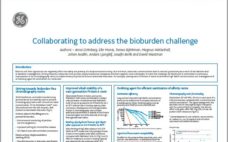Bacteria and their byproducts can negatively affect the safety and potency of a biopharmaceutical drug. At a minimum, bioburden contaminations lead to reduced productivity as a result of lost batches and/or deviation investigations. Striving towards a bioburden-free process, biopharmaceutical companies and their suppliers must collaborate. To meet this challenge, GE Healthcare is committed to continuous improvement of its chromatography resins to enable delivery of products without detectable bioburden. For example, development of Protein A resins to withstand high NaOH concentrations…
Author Archives: Anders Ljunglof
Polishing a Monoclonal Antibody (MAb) Using Captoâ„¢ adhere ImpRes in Bind and Elute Mode
A platform approach for MAb purification is desirable as it saves both time and money in process development. GE Healthcare Life Sciences’ MAb toolbox employs protein A chromatography media (resins) as well as a wide range of options for polishing purification steps. One of these options is Capto adhere ImpRes, a cost-effective and flexible multimodal anion exchange chromatography medium designed for high-resolution polishing of MAbs. The medium allows operation in either bind-elute (B/E) or flow-through (FT) modes. Here we describe…
Improved Capture with Better Productivity in MAb Bioprocessing
Growing commercial demand for therapeutic monoclonal antibodies (MAbs) has increased the need for efficient and cost-effective manufacturing processes. The development of cell cultures with very high expression levels is one clear example. over recent years, the antibody titers of mammalian cell culture have risen dramatically, and today we often see titers of 5–10 g/L. Expression levels as high as 15 g/L or greater have even been reported. Chromatography media (resins) that can capture these high-titer antibodies are therefore essential for…
Rapid Process Development for Purification of a MAb
Time and flexibility are essential in purification process development for biopharmaceuticals. Easy translation of experimental ideas into process steps and insight into the effects of changes in chromatography parameters both help speed development and contribute toward achieving quality by design (QbD) objectives. An ability to scientifically design product and process characteristics that meet specific objectives is crucial. Opportunities to eliminate manually intensive steps all support an enhanced development process. A typical monoclonal antibody (MAb) purification process includes three chromatographic purification…

